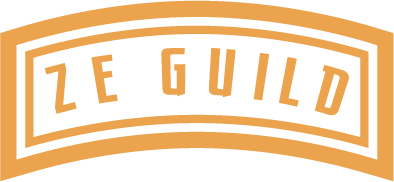Flutter, Google’s beloved framework for cross-platform development, is entering an unprecedented phase in its existence. Faced with resource challenges and a shift in priorities at its creator, a wave of independent developers has decided to forge their own path. Dubbed “Flock,” this forked version aims to inject a fresh dynamic into Flutter development, placing the concrete needs of its vast community at the heart of its priorities.
When the community redefines the trajectory of a Star Framework
In the ever-evolving landscape of software development, adaptability and responsiveness are paramount. Flutter, as a highly popular open-source tool, is no exception to this rule. However, opposing forces, such as a development team deemed under-resourced and Google’s strategic pivot towards artificial intelligence, have led part of its community to make a bold decision: take its fate into their own hands. The creation of “Flock” marks a potentially significant turning point for Flutter’s future, signalling a collective will to overcome perceived limitations and accelerate its evolution.
The deep motives behind the split :
- A Stark imbalance: a shortage of hands facing an army of developers
The starting point for this initiative lies in a stark reality: Flutter’s development team at Google, numbering around fifty people, struggles to support a sprawling community nearing one million developers. This structural imbalance inevitably leads to delays in processing requests, fixing bugs, and integrating external contributions. The growing frustration with this situation fueled the desire for a more agile and responsive approach.
- Google’s strategic shift: a collateral impact on desktop support
The rapid rise of artificial intelligence has naturally led Google to reallocate its resources towards this promising field. This strategic shift had a direct impact on Flutter’s support for desktop platforms, a feature eagerly awaited by a significant portion of the community. The feeling that desktop support was relegated to the back burner crystallised the desire for an alternative that would give more priority to these environments.
The call from the community: an untapped innovation engine?
Flock seeks to be the embodiment of this vast developer community, a pool of skills and ideas often constrained by the resource limitations of Google’s team. The primary objective is to harness this collective intelligence to:
- Significantly accelerate the processing of pull requests (PRs), proposals for changes submitted by external developers.
- Resolve critical bugs more swiftly, improving the user experience.
- Improve the overall user experience by taking into account real-world feedback.
Concrete changes on the horizon: expected features and urgent fixes
Unlike the original Flutter team, Flock intends to focus on implementing the most requested features from the community and resolving major bugs that have often been sidelined due to lack of resources. This pragmatic approach could lead to significant progress on aspects that have long been pending.
Future prospects: a new era for flutter?
The split and the birth of Flock have sparked a wave of hope within the community. The expectation for faster development and a more concentrated focus on the actual needs of users is palpable. By freeing itself from Google’s direct management, Flock could potentially offer:
- Better desktop platform support, thus addressing an increasing demand.
- Faster responses to feature requests and bug reports, improving development efficiency.
- Accelerated innovation through a more inclusive community-driven approach, fostering the emergence of new ideas and contributions.
Flock and ZeGuild: towards an Enriched Ecosystem?
As ZeGuild, a platform known for connecting businesses with top tech talent, watches these developments closely, a legitimate question arises: will we soon see developers specialising in Flock join the ZeGuild community? The rising popularity of this new branch of Flutter could undoubtedly create an ecosystem of highly specialised developers, opening new opportunities for businesses seeking expertise in this emerging direction.
The conclusion is a new exciting chapter for Flutter. The emergence of Flock indeed represents a pivotal moment in Flutter’s history. This initiative, driven by the passion and determination of its community, reflects the vitality and collaborative spirit that fuel the open-source world. For developers, businesses, and the wider ecosystem, Flock opens a new chapter that could be rich in innovations and opportunities. The future will tell whether this bold divergence will bear fruit, but one thing is certain: the Flutter community has decided to take its destiny into its own hands.



